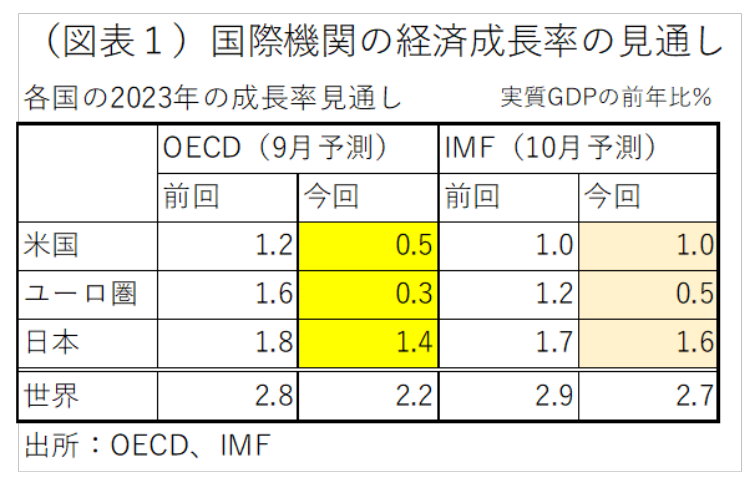ライフハックとしてではなく、英語学習にも極めて有用なのが、著名人が10分程度のプレゼンを行うTEDです。
TED Talksとは、あらゆる分野のエキスパートたちによるプレゼンテーションを無料で視聴できる動画配信サービスのことです。10年ほど前にサービスが開始されてから、政治、心理学、経済、日常生活などの幅広いコンテンツが視聴できることから人気を集めています。
RareJob English Lab
TEDは4000を超える膨大な数の動画があります。しかし慣れないうちは、動画の探し方や視聴のコツが分かりませんよね。この記事では、数多くのTEDを見てきた管理人(塩@saltandshio)が、心を揺さぶられたトークをあらすじと一緒にご紹介します。
ビジネス英会話を効率よく身につけたい方におすすめスクール
シェーン英会話
シェーンは1977年の創業以来、ネイティブ講師が英語を英語で教える「直接教授法」を採用しています。首都圏におけるスクール拠点数は、ネイティブ講師の英会話スクールでNo.1。駅から近いスクールが多いので通いやすく時間を有効に使えます。
スピークバディ パーソナルコーチング
1日1時間の短期集中トレーニングで、あなたの英語力向上をコーチが全力でサポートします。あなたの英語の世界が、劇的に変わります。
TED-Ed:経済は永遠に成長できるのか?
経済学者の多くは、人々の生活を改善し続けるには世界経済を永遠に成長させる必要があり、もし世界経済の成長が止まれば、人々は新しい価値を生み出すことに注力するよりも、現存する一定量の価値をめぐってもっと争うようになるだろうと考えています。そうなると疑問が湧いてきます。有限な地球上で無限に成長することはできるのだろうか?経済が効率性と持続可能性を両立できるのかを探ります(約6分)。TED-Ed / Can the economy grow forever?
[PR]無料体験レッスン実施中!全国208校、創業40年の老舗英会話スクール【シェーン英会話】有限の世界で経済が成長し続けるのは可能か
結論からいうと、「経済成長と同じくらい地球も大切にしていけば可能かもしれない」です。
株式会社第一生命研究所が2022年10月18日に「日本経済だけが生き延びられるのか?(熊野 英生)」というレポートを発表しました。概要では、「OECDやIMFなどの国際機関が、9・10月に発表してきた経済予測では、日本の2023年の成長率は、欧米を上回っている。これは、日本が金融緩和を続け、欧米で金融引き締めが行われるからだ。しかし、日本の輸出は、世界経済の鈍化によって押し下げられる作用も働くので、決して楽観はできない」と述べています。
実際に、来年の経済見通しはかなり厳しいものになると予想されています。その理由は、各国がインフレ抑制のために強烈な金融引き締めを行うからです。最近、発表された国際機関の経済見通しも、そうした変化を織り込んで下方修正されています。さらに、最近発表されたOECDとIMFの世界経済見通しでは、欧米の実質GDP成長率が2023年は極端に低くなっています(図表1)。

しかし過去200年もの間、世界経済はずっと成長を続けてきました。ただ、今後も成長し続けるかという点については、経済学者の中でも意見が分かれています。
経済学者の多くは、人々の生活を改善し続けるためには、世界経済を永遠に成長させる必要があり、もし世界経済の成長が止まれば、人々は新しい価値を生み出すことに注力するよりも、現存する一定量の価値を巡り、より争うことになると考えています。
Many economists think that an eternally growing economy is necessary to keep improving people’s lives, and that if the global economy stops growing, people would fight more over the fixed amount of value that exists, rather than working to generate new value.
それでは、資源が限られている地球で今後も経済成長していくことは可能なのでしょうか。その可能性を探ってみましょう。
[PR]まずは無料カウンセリング”続けるため”の オンライン英語コーチ「スピークバディ パーソナルコーチング」経済成長に必要なことはより多くのモノを作ること
少し古いレポートですが、2010年04月22日にニッセイ基礎研究所の客員研究員である 櫨(はじ) 浩一氏が書いた「日本に必要な成長戦略は何か」では、以下のように経済成長に必要なことが述べられています。
経済成長を支える三つの要素は、労働投入、資本蓄積、技術進歩だが、少子高齢化によって人口減少が続く日本では、経済成長するためには技術進歩がこれまで以上に重要となる。しかし現実には、労働者一人当たりの生産額などの指標でみても、日本の生産性向上の速度が大きく低下しているのは明らかで、躍進著しい新興国は言うまでも無く、他の先進工業国と比べても停滞は顕著である。日本経済の成長戦略としては、生産性の向上をいかに図るかという点に力点が置かれることが多い。日銀の白川総裁も、「趨勢的な成長期待を高めること、言い換えると、生産性の向上に地道に取り組むことが不可欠である」(内外情勢調査会における講演2010年1月、出所:日銀ホームページ)と述べている。
日本に必要な成長戦略は何か / ニッセイ基礎研究所
つまり、生産なくして経済成長無しということがいえるでしょう。しかし、ここでひとつ疑問がわきあがります。
では、あらゆるものの経済的価値の合計を増やすにはどうすればいいでしょう?
So how do we grow the total financial value of all things?
その答えのひとつは、より多くのモノを作ることです。そしてもうひとつは、新しいものを発明することです。しかし、ここでまた問題が出てきます。それは、「いずれにしても、経済を成長させるには資源とエネルギーが必要である」ということです。
[PR]しちだの魔法ペンなら35日でバイリンガルに!楽天4部門1位の英会話!<七田式>新技術はより多くの資源を失うことになる
過去200年の間に、経済が価値を生み出すために多くの資源が費やされてきました。そのおかげで、経済やそれに付随するものづくりは類を見ないほど効率的になったといえます。理論的に言えば、より少ない資源で多くの物を創出できるという計算になります。
そのために必要になるのが、それらを可能にする新技術です。
しかし、ここで行き詰ります。新技術は 物事をより効率的にするだけでなく、新たな需要を生み出し、結果としてより多くの資源を使うことになります。
This is where we hit a snag. New tech, in addition to making things more efficient, can also generate new demand, which ends up using more resources.
そして、忘れてはいけないのは、資源を多く使ったことにより自然が損なわれ、それに伴い世界各地で起きている気候変動に伴う異常気象です。経済成長と共に、私たちは文明を支えている多くの資源を失ってきており、それはいまなお現在進行形で進んでいるのです。
[PR]知って得する、知らないと損をする!すぐに役立つ相手に合った「伝え方」のコツ!問題の解決策は未来人の叡智?
異常気象だけでなく、多くの社会問題が現実問題としていま目の前に迫ってきています。それに対して、私たちはどうするべきかという点については、経済学者の中でも意見が分かれているところです。
ある経済学者は、「経済の指数関数的な成長を後押ししたのと同じように、人間の才智も指数関数的に高まってきていて、これらの難題を予想できない方法で対処するに至る」と述べています。ですが、対応は変化に対してあまりに緩やかなため、むしろ「経済を完全に設計し直すことが解決策である」と言う経済学者もいます。
彼らは、本当にすべきことは成長への依存から脱却し、ポスト成長の経済へ移行することだと説きます。
They make the case that what we should really be doing is weaning ourselves from the addiction to growth and shifting to a post-growth economy.
つまり、ポスト成長の経済では、経済成長すべきだとは考えず、代わりに再生可能エネルギー(医療 公共交通等)など、本当に必要なものを改善することに焦点を当てるべきだと述べています。
[PR]検定試験合格者累計140万人!スマホ対応☆国家資格ほか資格取得ならSMART合格対策講座まとめ:経済成長と同じくらい地球も大切にしなければいけない
ポスト成長では、豊かな国々が生活賃金を保証し、富と所得の不平等を減らして医療などの公共サービスを誰もが確実に受けられるようにすることを提唱しています。
アメリカでもいま、富めるものが富む社会に対して格差是正が強く求められています。
◆最低賃金、医療保険、気候変動…中道派のバイデン大統領も無視できず
20年の大統領選では、民主党バイデン(79)への投票割合は30~44歳で52%、18~29歳で60%に上った。45歳以上では共和党トランプ(75)が上回っているため、まさに若者がバイデン勝利に貢献したといえる。
「ジェネレーション・レフト」 アメリカで、日本で、若い私たちが政治を変える / 東京新聞
中道派のバイデンは今、最低賃金15ドル(約1700円)や幼児教育無償化、子育て世帯の支援拡大、医療保険の充実、気候変動対策での巨額支出など以前では考えられないほど「社会主義的」政策を掲げ、一部は実現させた。
しかし、いちど豊かさを経験した人たちにとっては、理想的であることは認めても自ら痛みを伴う改革については後ろ向きな点は否めません。
いずれにせよ、すべての人に利益をもたらし、かつ地球を大切にする方法も見つける必要があるのです。
One way or another, we have to find a way to benefit everyone while also taking care of our planet.
誰かが豊かに暮らすために誰かが泣くのではなく、お互いが本当の意味でwin-winになる世界。それぞれの成長のために、なによりもいま求められているのは、そのために必要なアイデアではないでしょうか。
英語全文
Let’s say you discover a magical gold coin that doubles every 25 years. 75 years later, you’d only have eight coins. But 1,000 years later, you’d have over a trillion. And in just 4,600 years, your gold coins would outweigh the observable universe.
<全文を読む>▼クリック▼
Many economists think that an eternally growing economy is necessary to keep improving people’s lives, and that if the global economy stops growing, people would fight more over the fixed amount of value that exists, rather than working to generate new value.
That raises the question: is infinite growth possible on a finite planet?
We measure economic growth by tracking the total financial value of everything a country (or the world) produces and sells on the market. These products can help us meet basic needs or improve our individual and collective quality of life. But they also, crucially, take resources to invent, build, or maintain.
For example, this smartphone. It’s valuable in part because it contains aluminum, gallium, and silicon, all of which took energy and resources to mine, purify, and turn into a phone. It’s also valuable because of all the effort that went into designing the hardware and writing the software. And it’s also valuable because a guy in a black turtleneck got up on stage and told you it was.
So how do we grow the total financial value of all things? One way is to make more things. Another way is to invent new things. However you do it, growing the economy requires resources and energy. And eventually, won’t we just run out?
To answer this question, let’s consider what goes into the economy and what comes out of it: its inputs are labor, capital— which you can think of as money— and natural resources, like water or energy. Its output is value. Over the past 200 years, economies have gotten exponentially more efficient at producing value.
If we, as a species, are able to keep upgrading our economies so that they get ever-more efficient, we could theoretically pump out more and more value using the same— or, let’s be really ambitious here— fewer resources.
So, how do we do that? How do we increase efficiency? With new technologies.
This is where we hit a snag.
New tech, in addition to making things more efficient, can also generate new demand, which ends up using more resources.
We’re actually not in imminent danger of running out of most resources. But we have a much bigger and more immediate problem: the global economy, and in particular those of rich countries, is driving climate change and destroying valuable natural environments on which all of us depend— soil, forests, fisheries, and countless other resources that help keep our civilization running.
So, what should we do?
This is where economists disagree.
Most economists think that new ideas will be able to fix most of these problems. They argue that, in the same way that exponentially increasing resource and energy use have fueled exponential economic growth, human ingenuity has also increased exponentially, and will rise to meet these challenges in ways that we simply can’t predict. For example, between 2000 and 2014, Germany grew their GDP by 16%, while cutting CO2 emissions by 12%.
That’s impressive, but it’s not cutting emissions fast enough to limit warming to 1.5 degrees Celsius. For this reason and others, some economists think the solution is to reengineer our economies completely. They make the case that what we should really be doing is weaning ourselves from the addiction to growth and shifting to a post-growth economy.
What would that look like? A post-growth economy wouldn’t assume that the economy should grow; instead, it would require us to focus on improving what we really need— things like renewable energy, healthcare, and public transportation. To do that, post-growth economists suggest that rich countries should do things like guarantee living wages, reduce wealth and income inequality, and ensure universal access to public services, like healthcare. In such an economy, people would be theoretically less dependent on their jobs to earn their living or get healthcare, so it might be more feasible to scale down production of things deemed less necessary.
But this raises other questions: who gets to define what’s necessary? How would we resolve the inevitable disagreements? Could we really do away with entire industries?
The “we’ll come up with new ideas to solve these problems” approach can seem as realistic as, well, a magical gold coin. And the “we have to fundamentally change our economies” approach can seem politically daunting, particularly in rich countries. One way or another, we have to find a way to benefit everyone while also taking care of our planet.
<閉じる>
\ ほかにも気になるトークが満載! /








